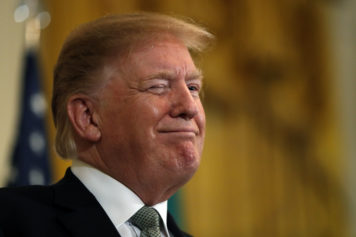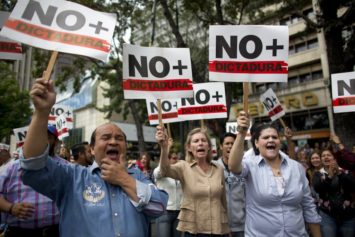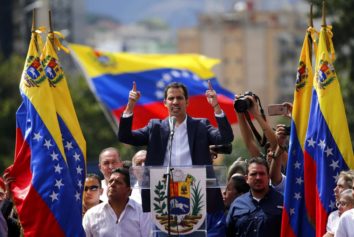With concerns about the long-term health of Venezuelan president Hugo Chavez, the world is turning its attention to his best friend and new Vice President, Nicolas Maduro, a former bus driver who is poised to become the most powerful man in Venezuela if Chavez were to succumb to the cancer that forced him to have three operations in the past year.
Though no one really knows the condition of Chavez’s health, since the mercurial leader had refused to release details of his cancer treatments—the public hasn’t even been told what kind of cancer he has—there is no doubt that he was not as robust during his recent presidential election campaign as people have come to expect.
Maduro has been a close friend and confidante of Chavez’s for 20 years—he was among the tiny circle who accompanied Chavez to Cuba for his cancer operation. With uncertainty over how long the 58-year-old Chavez will be around, observers are wondering what kind of leader Maduro would prove to be. Genial and well-liked, Maduro is considered a more moderate force in the Socialist regime than many other hard-liners.
“Look where Nicolás is going,” Chavez said when he proudly announced his new No 2. “Nicolás was a bus driver on the metro, and look how the bourgeoisie make fun of him.”
Despite being viewed as a consensus builder in Venezuela, Maduro is just as eager as Chavez to take shots at the United States whenever he’s given the opportunity. He went in hard on President Obama earlier this year during the Summit of the Americas in Cartagena, Colombia, when Maduro was still foreign minister.
“Obama does not know the reality of our country,” Maduro said. “He acts with great cynicism, great wickedness. He has inherited, unfortunately, after having spent three years in government, the cynicism and wickedness [of George W Bush].”
As foreign minister, Maduro negotiated agreements with some of the U.S.’s most prominent adversaries, including Cuba, Iran, Russia and Belarus.
As vice president, Maduro clearly won’t have a lot to do toiling under the domineering Chavez, even if they are best friends. But he will be in the strange position—though common for vice presidents—of always being on the verge of going from extreme impotence to extreme power.
The friendship between Chavez and Maduro is undeniable. In a recent TV appearance, the two men joked about their growing waistlines, with Chávez challenging Maduro to stay away from the oversized “submarine” sandwiches and Maduro responding by sarcastically congratulating the President for losing “a few grams.”
“I gave it my all and I’m proud of what we built,” a subdued Capriles told supporters at his campaign headquarters after he lost. “I will continue to work for Venezuela.”
Venezuela owns the world’s largest proven oil reserves, nearly 297 billion barrels, according to OPEC, and has overtaken Saudi Arabia to become the world’s number one source of proven oil reserves—with 10 percent more oil than Saudi Arabia and 18 percent of the world’s total. According to a report by the Guardian, Venezuela’s reserves would last another 100 years at the nation’s current levels of productions.


